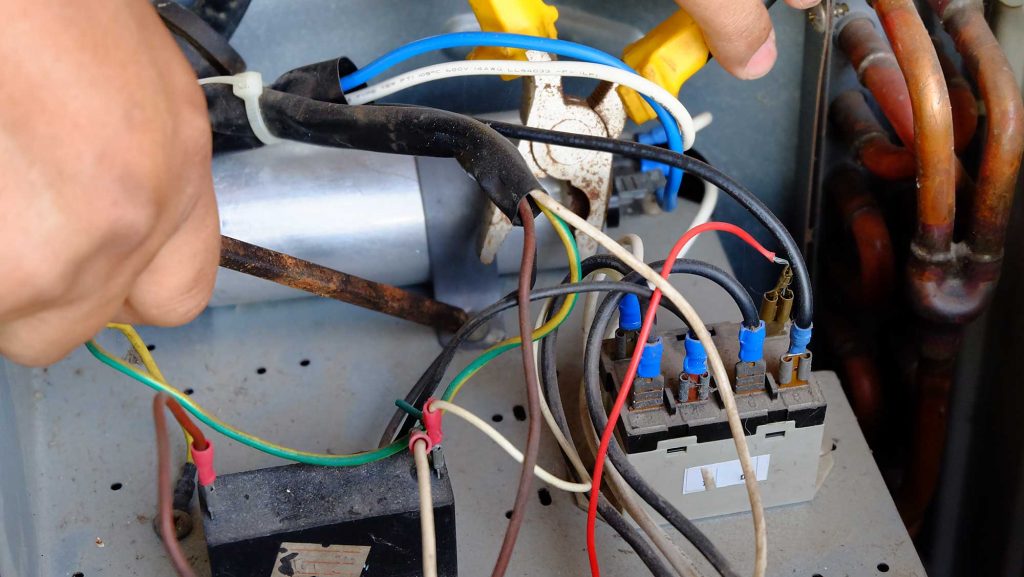-
5 Reasons to Call for Emergency Furnace Repair
A furnace can be a tricky system. Generally speaking, they are completely safe and rarely cause safety issues. However, occasionally they may develop a problem that could turn into something worse. While there is no reason to feel worried about using your furnace, it is important to call a professional when you think there may be a problem or emergency.
Discerning whether or not a furnace problem is an emergency can be difficult. Read on for five reasons to call for Emergency Furnace Repair.

Emergency Furnace Repair 1. Furnace Won’t Turn On
On cold winter nights, it’s imperative that your furnace can properly work. A furnace that won’t turn on is most definitely a reason to schedule an emergency repair. There are a few reasons why your furnace may not be working. Sometimes the cause is simple, such as a power issue. Other times, the situation could be as serious as a breakdown that requires a replacement. Be sure to call a heating and cooling specialist as soon as you notice that your furnace won’t turn on.
One of the best ways to avoid this issue is to schedule biannual furnace maintenance. During a maintenance appointment, technicians will provide an inspection and a tune-up of your furnace. Doing this may help to eliminate any issues that could cause a potential breakdown. Here are some more benefits of scheduling maintenance:
- Extended lifespan
- Reduced risk of repairs
- Lower monthly energy bills
Scheduling maintenance is a great way to avoid emergency furnace situations.
2. Odd Noises Coming from the Furnace
We all know that heating and cooling systems make weird noises every once in a while. However, when these noises become more frequent, repetitive or loud, then it may be time to call a specialist. Take a look at some odd noises that may suggest you have an emergency issue on your hands:
• Grinding: there are bearings inside of the furnace motor that needs to be lubricated every once in a while. If they aren’t then they will begin to cause damage within the motor.
• Rumbling: when a furnace completes a cycle, it should completely go silent. If you start to hear a rumbling noise after the furnace has completed a cycle, then it could mean that the fuel is still burning. This is a fire and safety hazard and should be taken care of immediately.
• Thumping: this noise could indicate that there is a loose motor or blower wheel. This is something that needs to be repaired right away.
• Popping: it’s normal to hear a popping noise every once in a while. However, if you start to hear it more often, then it could mean that cracks are forming in the heat exchanger. Heat exchanger cracks can become dangerous if they leak carbon monoxide.
Give your technician a call if you hear one of the above noises.

3. Thermostat is Broken
When thermostats become disconnected, they may stop working. This could cause your furnace to stop heating up. Typically, thermostat repair is quick and easy. In most cases the situation can be fixed with recalibration or electrical work.
Sometimes the thermostat will need to be replaced. Even this is not an especially difficult process unless you are wanting to install a smart or zoned thermometer. These can save you money by automatically setting your thermostat to certain temperatures throughout the day. Give your technician a call for emergency furnace service or thermostat replacement.
4. Furnace is Overheating
When your furnace works too hard it will start to overheat. Usually, most furnaces turn off if they are overheating through a sensor. If this sensor is broken, the furnace won’t be able to tell that it is overheating. Furnaces often overheat due to a blockage such as a dirty filter or debris. Fixing this problem is easy for the most part. However, it can cause problems if left for too long.
An overheating furnace is especially dangerous because it can lead to fire hazards and even a breakdown. It may be difficult to tell if your furnace is overheating. The best way is to pay attention to whether or not it is cycling on and off. If it continues to run without turning off, then it is overheating. Be sure to call a technician for HVAC repair as soon as you notice an issue like this.
5. Strange Furnace Odors
Some furnace odors are normal or indicate a non-emergency issue. For example, a burning smell is typically just the smell of burning dust and debris that has settled on top of the furnace. There are some odors, however, that should not be ignored:
• Metallic: a metallic scent can mean a few things. It usually means that the internal parts are getting too hot. If you smell a metallic burning smell coming from your furnace, shut it off and call a technician.
• Rotten eggs: if you smell rotten eggs or a sulfuric scent, evacuate your home immediately and call the fire department to shut off your gas. Gas companies add the smell of rotten eggs to the gas so that residents know when there is a gas leak. Once the danger of a gas explosion has subsided, call a heating and cooling specialist for assistance.
• Chemical: a chemical smell coming from your furnace could mean that there are cracks in your heat exchanger. The heat exchanger works to move heat from the combustion chamber to other sections of the furnace. When cracks appear, it may smell similar to formaldehyde. Contact a repairman right away if you notice this smell as you may be at risk of carbon monoxide poisoning.
Heating and AC Repair